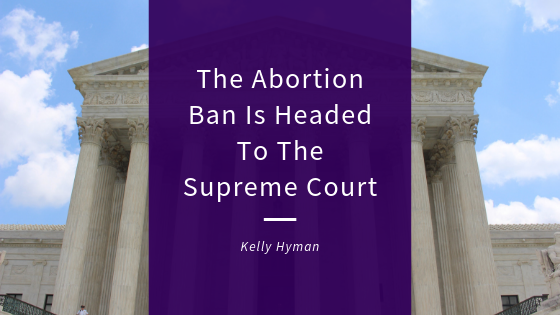Alabama’s new abortion law has everyone taking a position on one side of the issue or the other. While the public is emotionally charged by the issue, the supporters of the law in Alabama’s legislative body are pursuing a rational tactic. Ultimately, the law may force the U.S. Supreme Court to re-evaluate the Roe vs. Wade doctrine.
Taking on Alabama
In November, Alabama’s abortion law will go into practice, making it the harshest abortion law in the United States. In the meantime, political action groups, such as Planned Parenthood and the ACLU, are taking legal action to block the official enactment of the law. They’re not alone, either. Several reproductive rights groups have vowed to launch their own lawsuits against the state after learning that Alabama governor Kay Ivey signed the bill.
According to the new law, it’s now illegal for any healthcare provider to participate in abortion procedures. This includes assisting in the procedure or attempting to perform the procedure, for almost any reason. While the law does make allowances for instances in which the pregnant patient’s life is at stake, there are related restrictions that must also be considered.
If found guilty of violating the law, medical practitioners may face several decades in prison, hefty fines, and will almost certainly lose their medical licenses. The recipients seeking these procedures are not penalized similarly under the law. However, by enacting these stiff penalties against doctors, women would likely have to travel out of state to obtain an abortion.
A Lost Cause
While public criticism of the law has spread across the country, Alabama lawmakers may not expect the law to hold up to legal scrutiny. In fact, they may expect the law to be defeated in the state’s lower courts since it does violate the protections offered by Roe vs. Wade. However, they may pursue the issue all the way to the U.S. Supreme Court, where they desire to have the Roe vs. Wade decision challenged.
The lawsuits filed by the ACLU and Planned Parenthood argue that the new abortion law violates other rights, as well. Specifically, their complaint states that the law violates the 14th Amendment, which guarantees the right to liberty. Along with other constitutional amendments, the 14th Amendment is also said to imply a right to privacy. That right to privacy is also violated by the abortion law, according to the lawsuit documents.
Other states facing lawsuits to challenge restrictive abortion laws include Mississippi, Ohio, and Kentucky.

